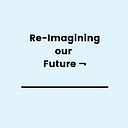Re-Imagining Intimacy
A Dispossessed Intimacy
Have words lost their essence because they have been either overused or misused? How can I escape from the existing masculine language structure that I have subconsciously learned through growing up in the ‘mainstream’? Would it be a process of unlearning?
Do roles and identities matter? Genders, race? Isn’t every distinction a detachment from the whole? Don’t we all make theories? What is right and what is wrong? Ambiguous and uncertain is life, so precarious…
The dispossessed!
The conditions of the anthropocene have created unhealthy tensions in most modern societies and, subsequently the non-human environment (trees, mycelium, oceans, etc.). Our world is getting more and more polarised, all these views, all these different realities and egoic desires.
Ursula Le Guin argues that utopian imagination is trapped, like capitalism and the human population, in a one way future consisting only of growth or progress.
The fragmentation of society, the missing connections between land, people and other species. It seems to me that cultivating intimacy with people, animals, landscapes, machines and others is fundamental to understanding our relationships, our ecology. This is an intimacy of ‘showing-up’. An intimacy of being ‘present with’. Anna Tsing, in her book The Mushroom at the End of the World, calls this an intimacy of ‘noticing’.
What is intimacy? When I typed it into Google the first definition that popped up was, “close familiarity or friendship; closeness.”, and the example sentence below it was, “the intimacy between a husband and wife.” Now, based on this definition, it would be interesting to go to different places, all over the world, and observe the relationship(s) between husbands and wifes to gauge the genuine level of intimacy in that community, that culture, the world.
My guess is that the strength of relationships in the family, would positively correlate to the strength of relationships within the community and to the non-human ecosystems that the community rests within. Again, this is just a guess. But, it feels like the values that permeate the system (i.e. competition vs. cooperation, intellect vs. intuition, masculine vs. feminine) will permeate the relationships within the system: self — self: self — other self: self — environment.
Natural living systems are balanced. Do you feel that our human systems are balanced? Consider that question with each of these pairs of values in mind:
As individuals, when we are genuinely balanced, and living our ‘Truths’, we have the highest potential for intimacy (with self, other, and the environment (wait, aren’t they all one?)). Can you imagine more intimate communities?
Lead Author: Terry Vergos (first 4 paragraphs)
Terry Vergos is an experienced practitioner working at the intersections between arts, ecology, spirituality, communities and ecovillages.
In the past year Terry has been developing a workshop called, “Being Ecological?”. This has been a process which has unfolded together with his personal journey, as he continues to grow, and realize different different realities.
In this multiversal universe the “Being Ecological?” workshops are journeys to understand uncertainty, ambiguity and intimacy as the basic qualities of life — gates to connectedness between humans, non-humans and others.
“Being Ecological?” is a place where science meets spirituality, a place that questions what does it mean to be human in times of environmental disturbance.
The theoretical framework of the training is based on Fritjof Capra and Pier Luigi Luisi’s ideas, which were captured in the book, “The Systems View of Life”, Gaia Education’s “EDE” program, Systems Thinking, Complexity Theory, Biology and especially the work of Fransisco Varela and Humberto Maturana on perception, cognition and cultural biology.
The workshop is specifically for artists who are invited to create works based on this training for their communities.
Anchor Author: Daniel Rudolph
Daniel Rudolph is interested in exploring alternative, experiential learning opportunities for people of all ages. He is passionate about forming community, and building public spaces for meaningful, transformational gathering. Currently he is spending a lot of his time learning juggling and facilitating gatherings. He also enjoys writing and sharing poetry. Daniel is a very curious and playful person and is always open for creative collaborations.
